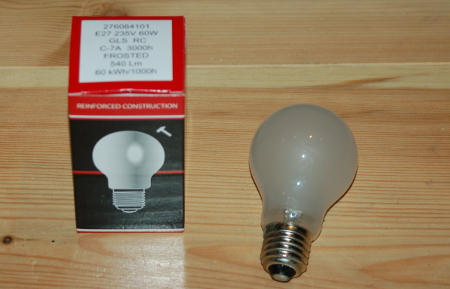To be clear, I’m against patents on seeds and all other forms of life. At the same time, I’m against the goals of the campaign called No Patents on Seeds.
All Seeds
The website of this campaign makes it appear as though they are against all forms of patents. The petition they are asking people to sign, also appears to oppose all patents on life. Privately however, they are lobbying for an end to patents only on conventionally bred seeds, arguing this is a necessary starting point.
Note that nothing on the website, not the petition or their statements, exclude the possibility of them lobbying solely for the removal of patents on conventionally bred plants. It all comes down to trusting or not trusting the people behind the campaign.
If GMOs are excluded from this campaign, as it appears now, this will mean GMOs have an enormous marketing advantage over traditionally bred plants. This will be a much worse situation than what we have now.
An Error in Implementation
Patents on seeds were more or less forced on the seed industry from the pharmaceutical industry, who wanted to ensure their inventions were fully patentable. This came about by way of more or less secret negotiations between the EU and US, in a similar way TTIP and other trade agreements have been arranged.
In a similar way, the EU patent office was created. The EU patent office has more or less diplomatic status. Technically speaking, even police are not allowed to enter the building uninvited, and it exists outside of EU law, almost like a foreign embassy. The reason for this was to insure there could be no ‘political interference’ in the issuing of patents.
As it turns out, there was a mistake in the implementation of seed patents, and conventionally bred plants were accidentally included. What happened was they did exclude seeds resulting from conventional breeding, but forgot to exclude the resulting products grown from the seeds. Now the seed industry itself is caught in the middle of this legal construction that was intended to prevent any changes to the operation of the EU patent office.
Plant Breeding
Plant breeders everywhere depend on the free exchange of genetic materials. Here in the Netherlands are a number of companies involved in industrial plant breeding, and they all more or less freely exchange genetic resources with one another. Independent plant breeders also usually exchange material.
As soon as patents are allowed on conventional breeding, determining exactly what’s patented, and who owns the patents, becomes almost impossible. This is an enormous problem for the seed industry. It’s also an enormous problem for independent plant breeders, but given the problems for the seed industry are more serious, I think we should accept this for the time being.
Industry Lobby Efforts
The campaign No Patents on Seeds was started in the Netherlands by Bionext, the lobby organ for industrial organic food, and is supported by the non-organic industrial food sector as well. There are intense lobby efforts by these groups in Brussels now, but only concerning conventionally bred seeds.
If you support this campaign, you are supporting the lobby efforts of the food industry.
Webs of Trust
One of the issues here is who do you trust. Since by reading this, you know this campaign is flawed, it’s really a good idea to familiarize yourself with the organizations behind it. The people and organizations who signed the petition are not necessarily bad, as the petition itself is not all that bad. The organizations that are putting themselves forward for the purpose of misrepresenting the intentions of the petition are the ones to be concerned with.
The food movement in general does not need these blurring of lines between the food industry and activist movements.






